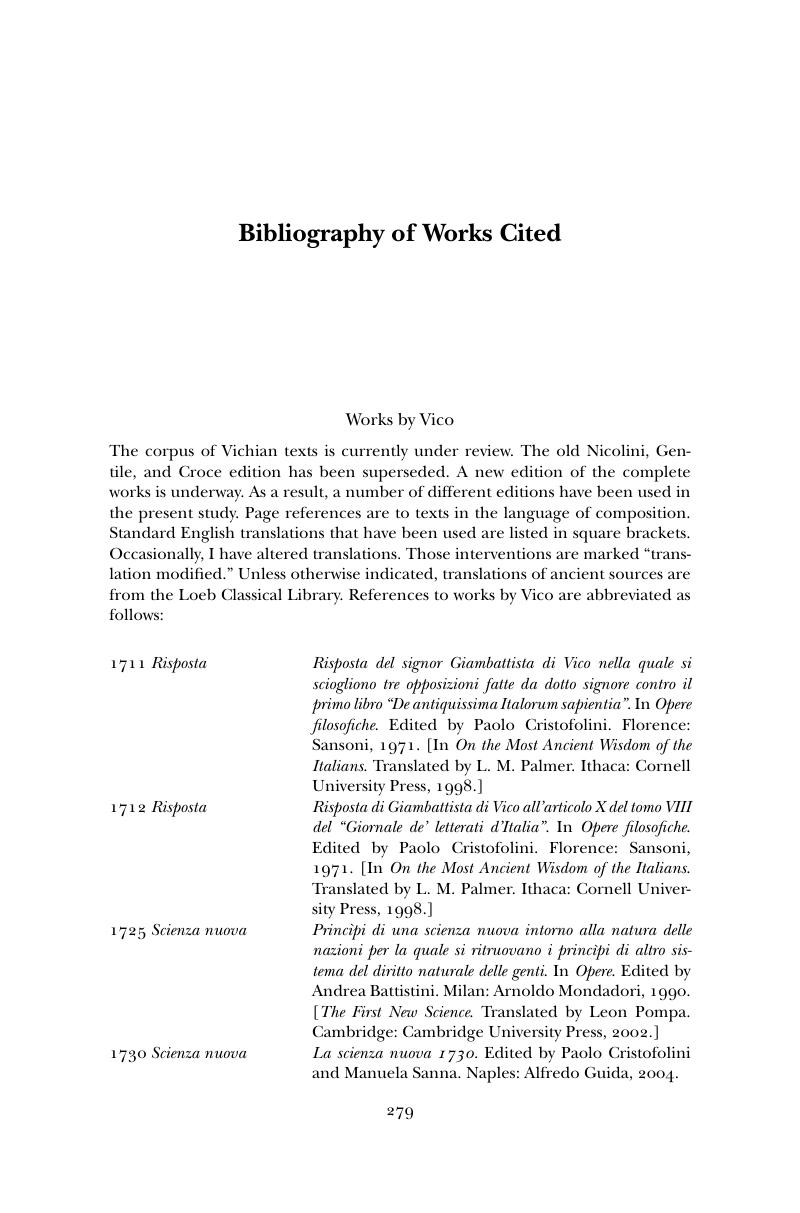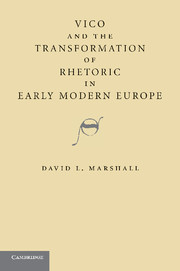Bibliography of Works Cited
Published online by Cambridge University Press: 06 July 2010
Summary

- Type
- Chapter
- Information
- Vico and the Transformation of Rhetoric in Early Modern Europe , pp. 279 - 294Publisher: Cambridge University PressPrint publication year: 2010



